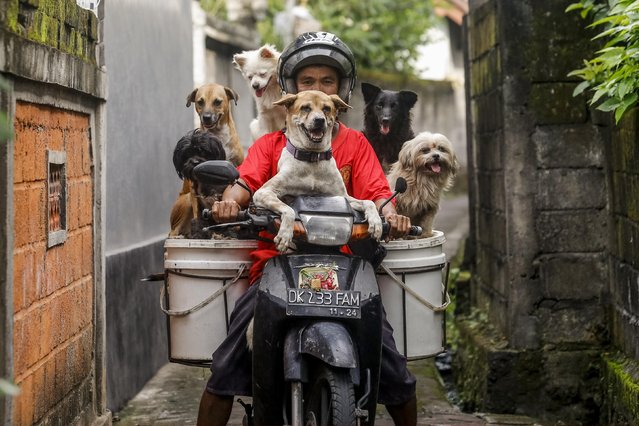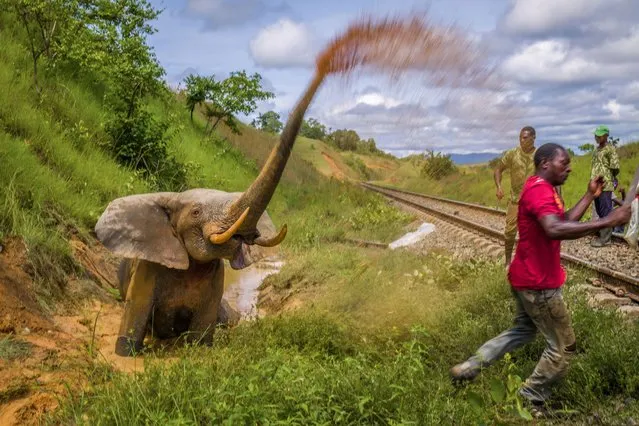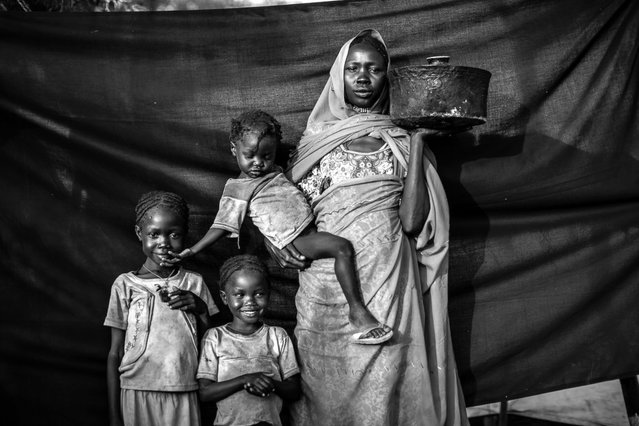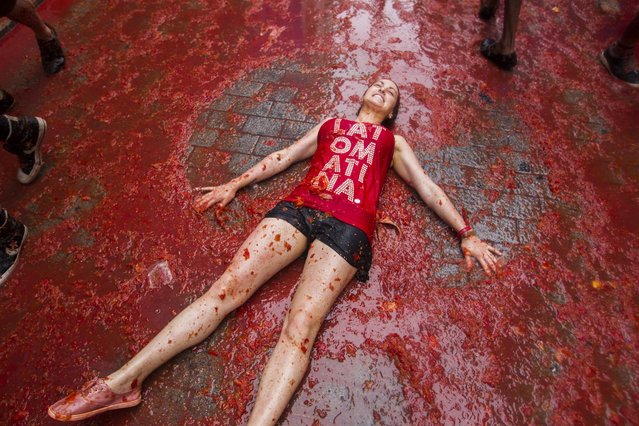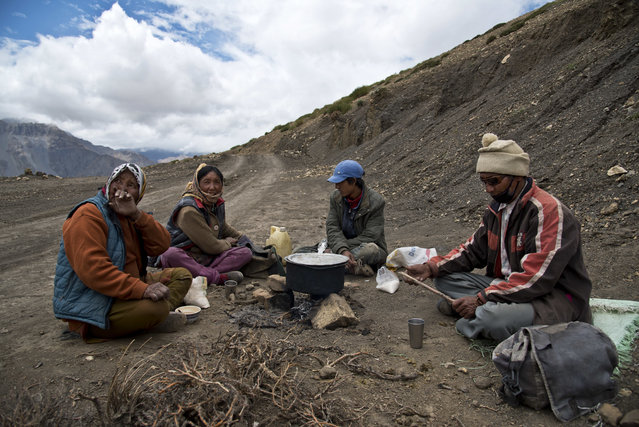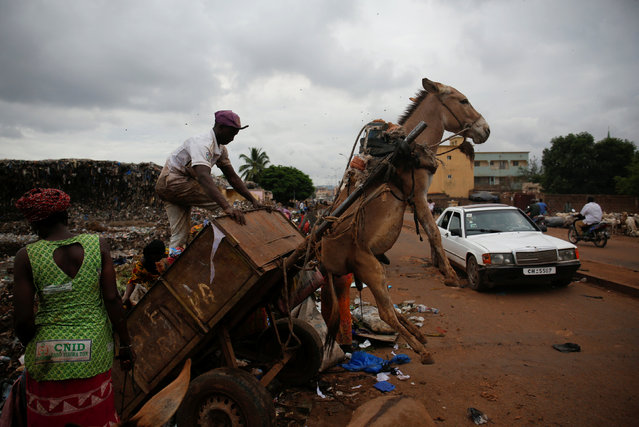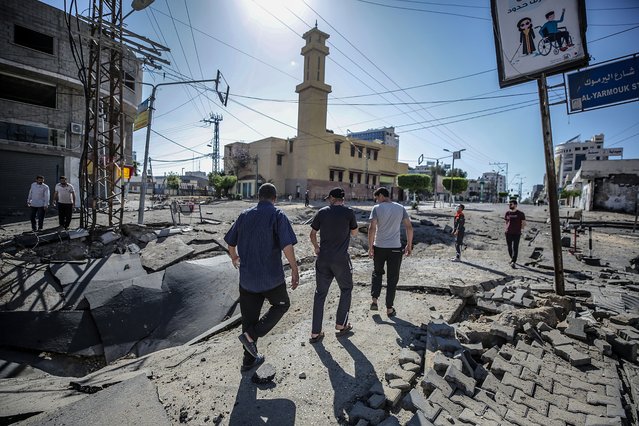
Palestinians inspect a destroyed street after an Israeli strike in Gaza City, 13 May 2021. In response to days of violent confrontations between Israeli security forces and Palestinians in Jerusalem, various Palestinian militants factions in Gaza launched rocket attacks since 10 May that killed at least six Israelis to date. Gaza Strip's health ministry said that at least 65 Palestinians, including 13 children, were killed in the recent retaliatory Israeli airstrikes. Hamas confirmed the death of Bassem Issa, its Gaza City commander, during an airstrike. (Photo by Mohammed Saber/EPA/EFE)
22 May 2021 08:52:00,post received
0 comments

